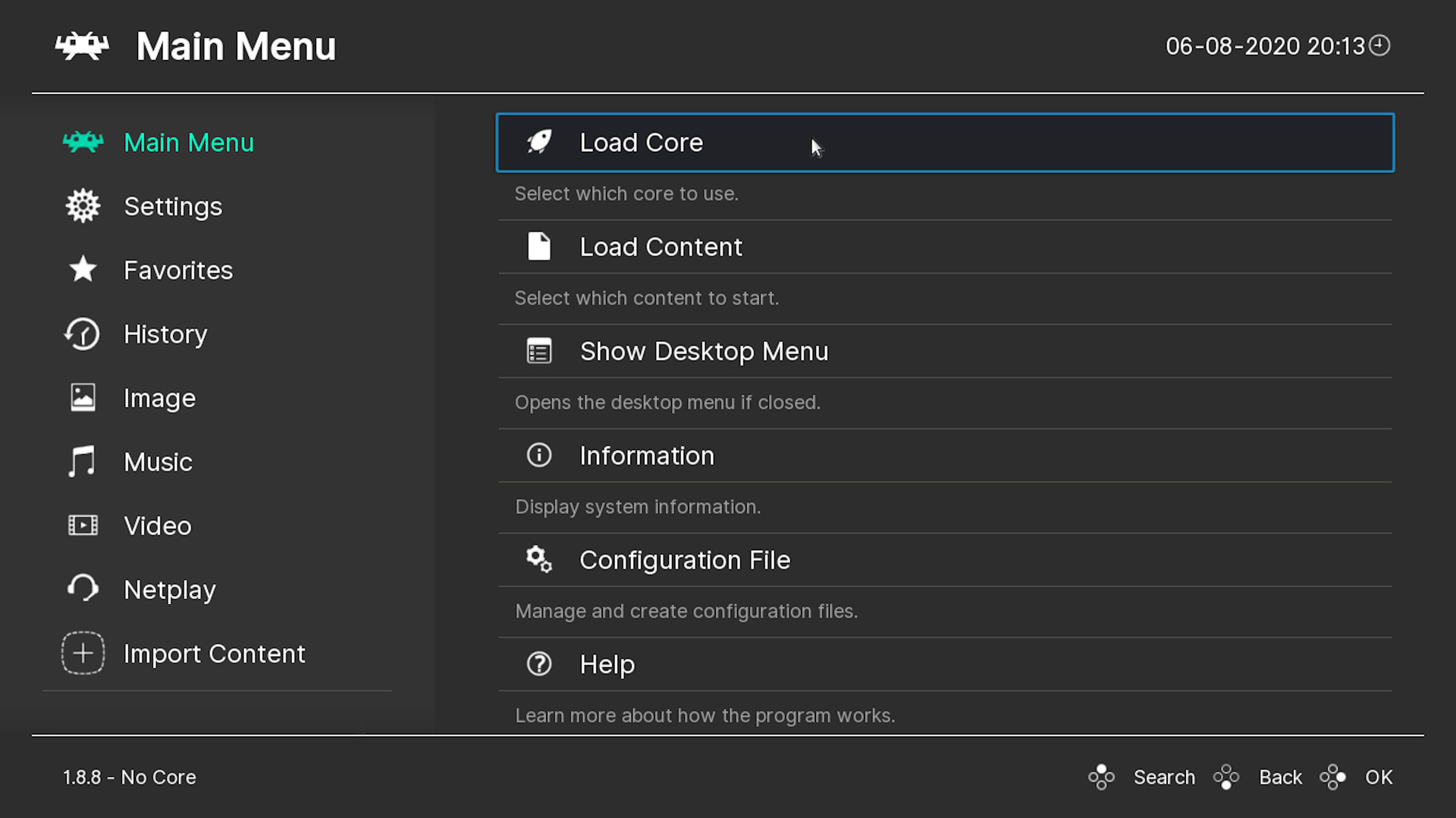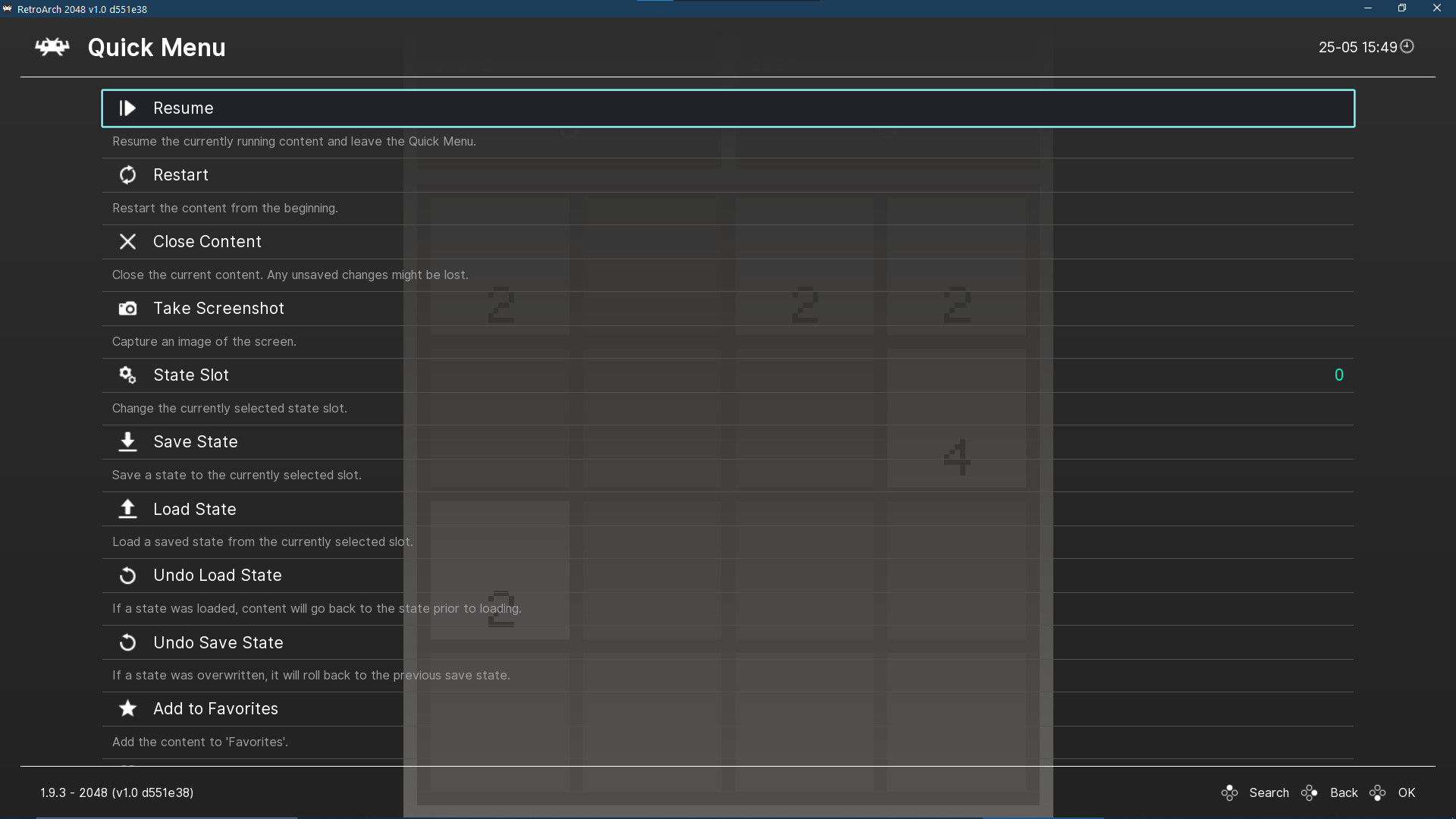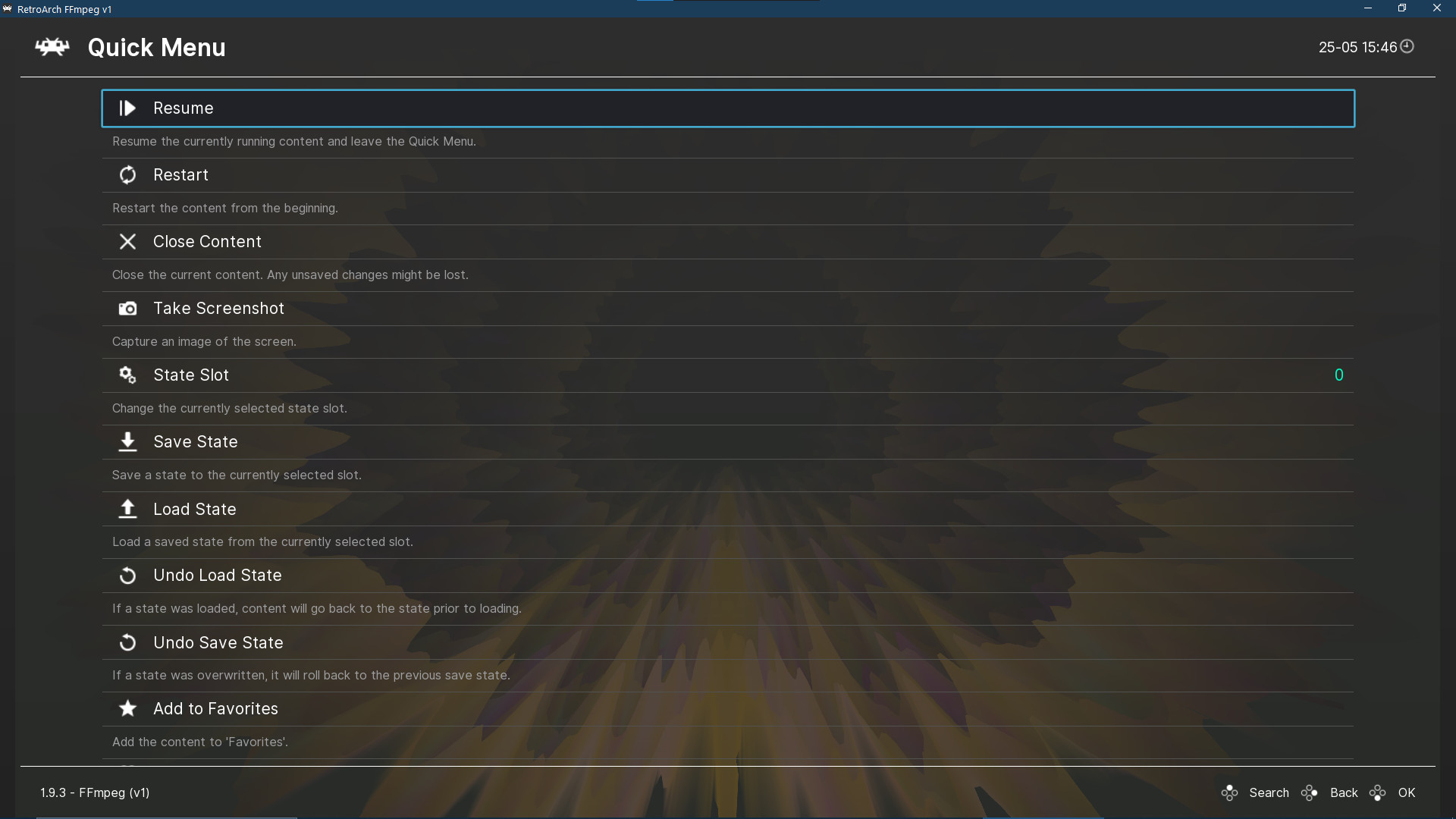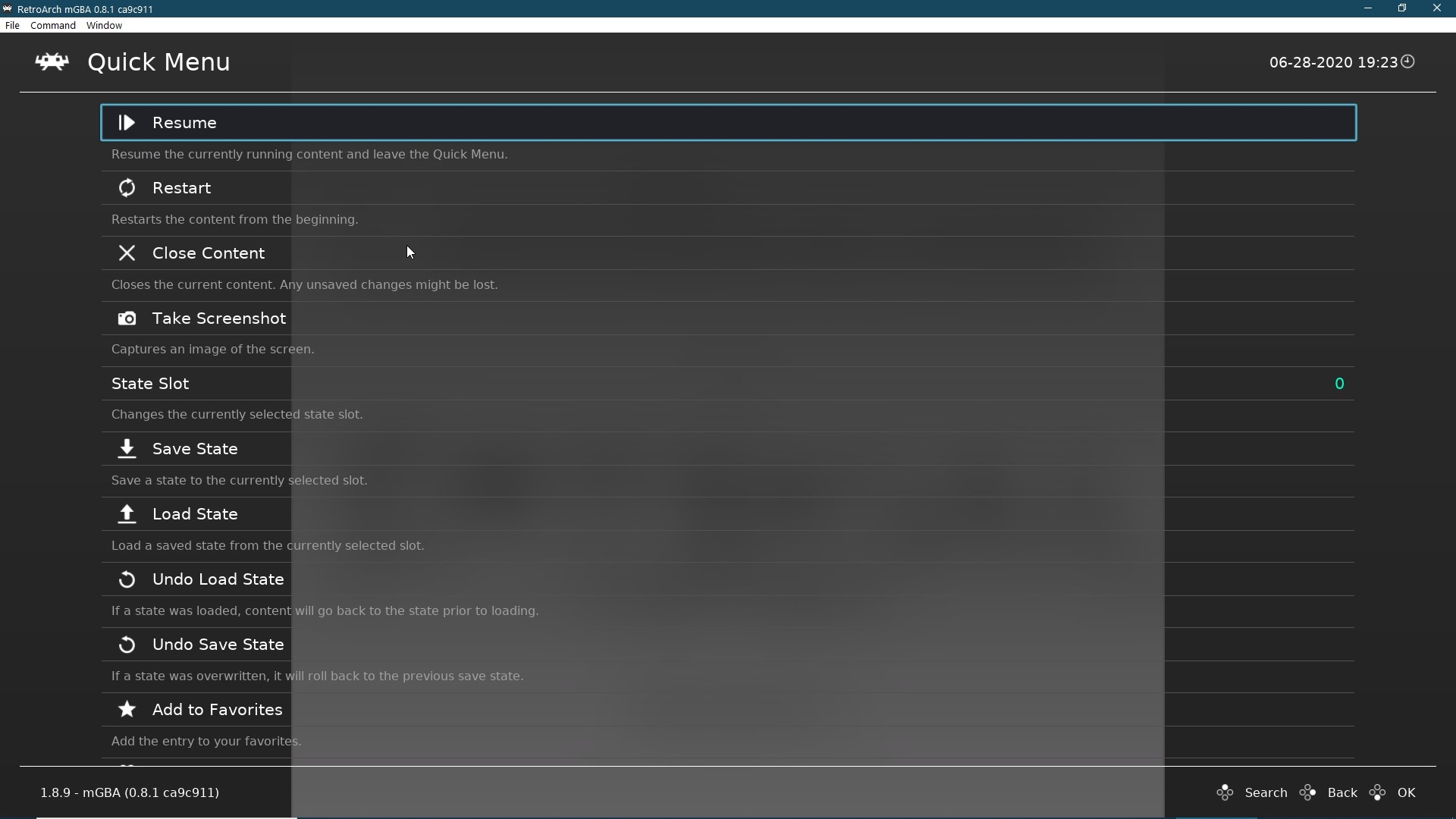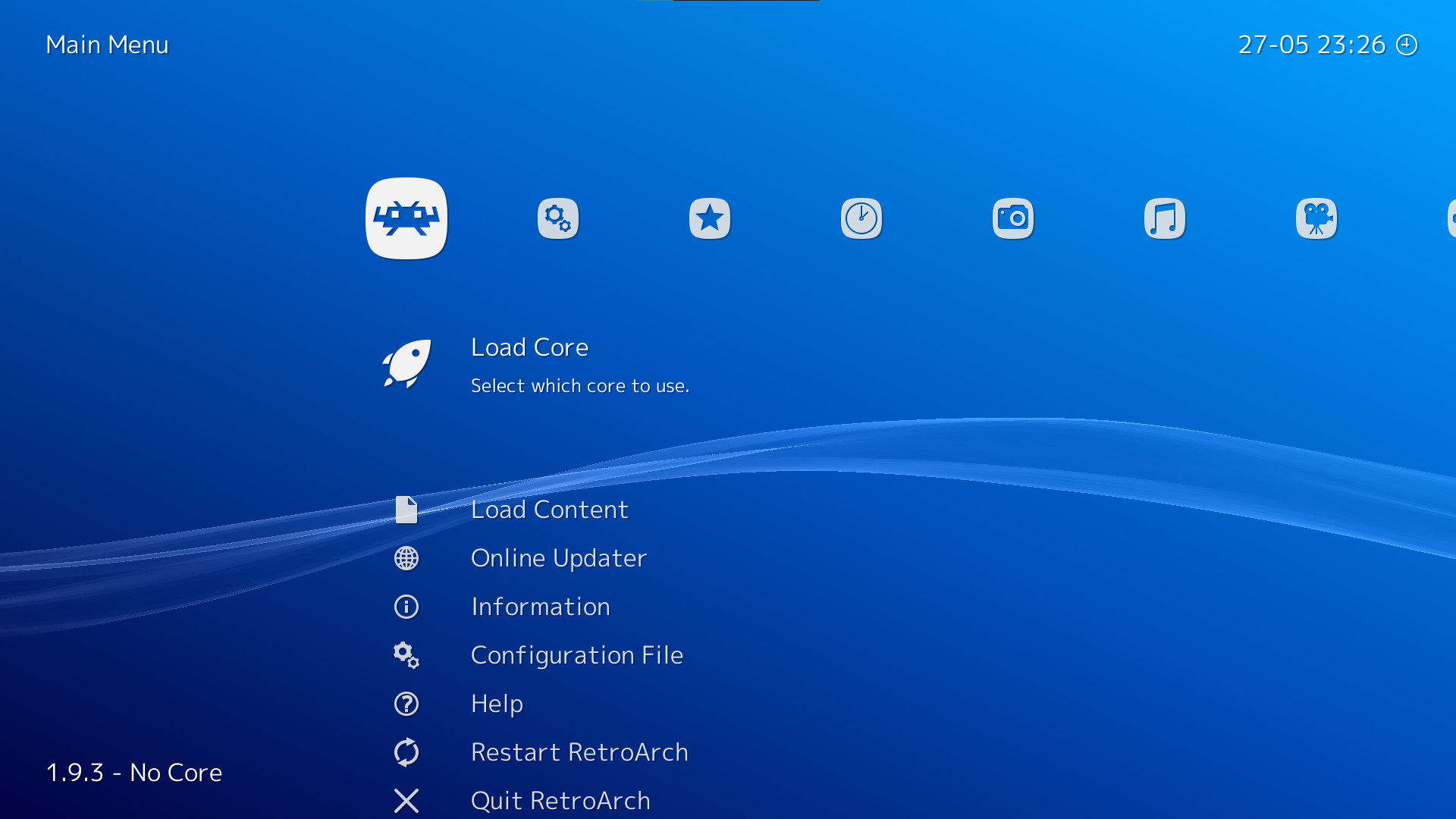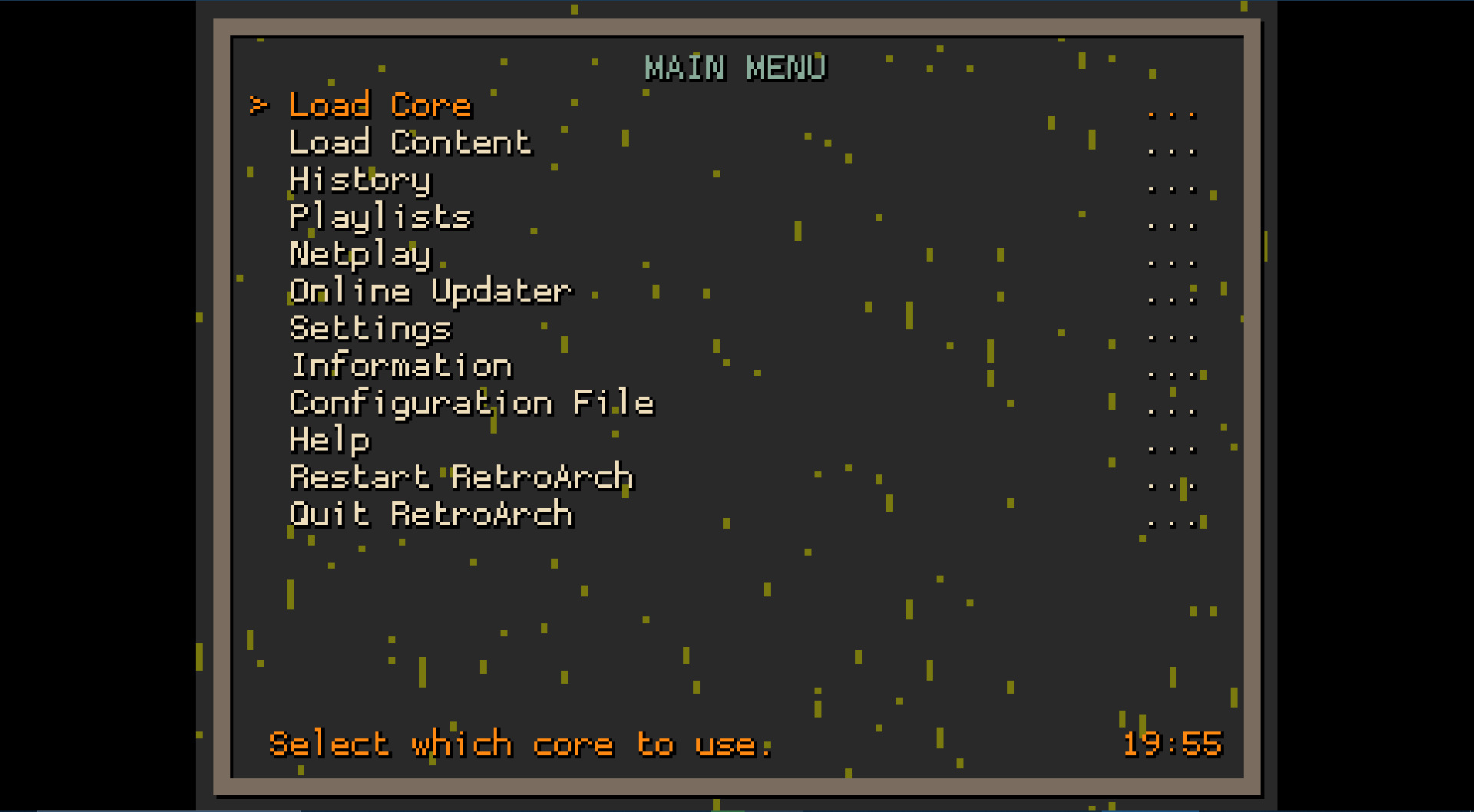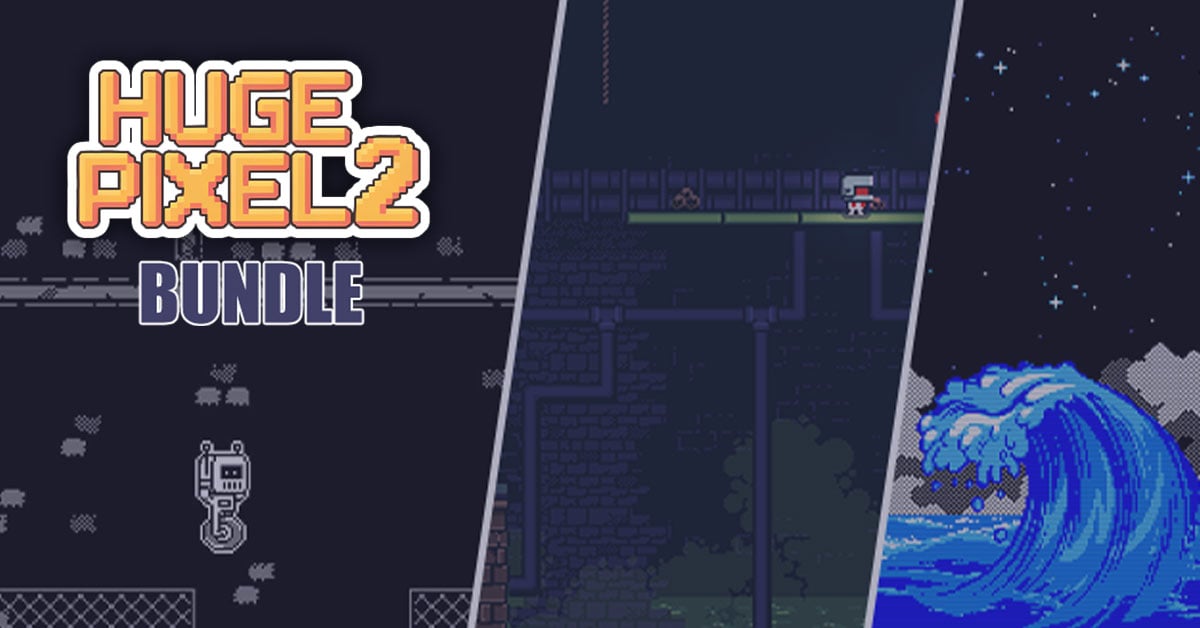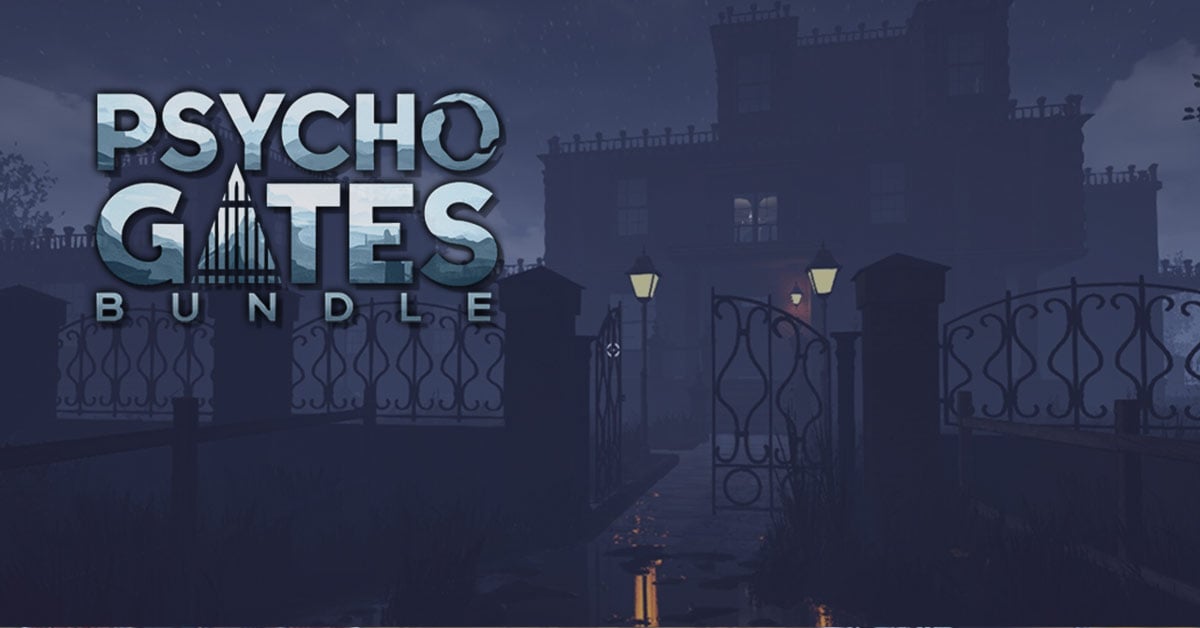_(Phone).png?t=1630925717)
RetroArch is an open source and cross platform frontend/framework for emulators, game engines, video games, media players and other applications.
While it can do many things besides this, it is most widely known for enabling you to run classic games on a wide range of computers and consoles through a slick graphical interface. Settings are also unified so configuration is done once and for all.
In addition to this, you will soon be able to run original game discs (CDs) from RetroArch. We take videogame preservation seriously and want to ensure you can run your originally bought content on modern day PCs.
RetroArch has advanced features like shaders, netplay, rewinding, next-frame response times, runahead, and more!


Maybe there is no rewind in real life, but there is a rewind in RetroArch! You can go back in time and correct your mistakes!

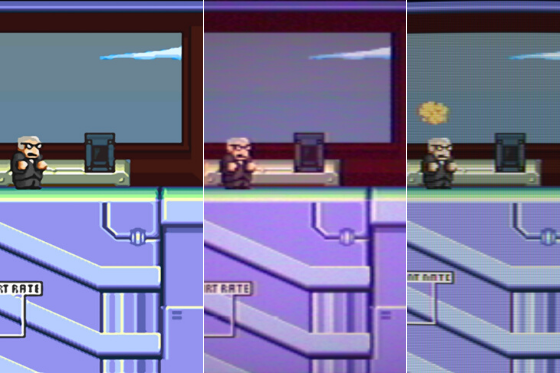
Seeing things as we remembered was our first priority, so with our Shading feature, you can change colors, smooth pixels or recreate your bedroom TV from 1995!


You think the excitement of playing elbow-to-elbow with friends is a bygone memory? No! With our rollback-based, latency-hiding Netplay, your Player 2 is beside you again! Fight the competition not the lag!
The Steam version may differ from the Normal version. The following changes are written for general use. The RetroArch Playtest version will be updated at a later time today.
RetroArch 1.9.3 has just been released.
Grab it here: http://retroarch.com/?page=platforms
Remember that this project exists for the benefit of our users, and that we wouldnt keep doing this were it not for spreading the love with our users. This project exists because of your support and belief in us to keep going doing great things. If youd like to show your support, consider donating to us. Check here in order to learn more. In addition to being able to support us on Patreon , there is now also the option to sponsor us on Github Sponsors ! You can also help us out by buying some of our merch on our Teespring store !
Release notes
We have a roadmap now (see here ), and you can expect more frequent releases from this point on. We are aiming for a new version every two weeks. We were initially aiming to have the Lakka version ready to be released concurrently with this version, but had to postpone it. We are definitely aiming to have a new Lakka version ready with future releases of RetroArch though.
We have implemented core info file caching and enabled this by default for the console platforms. This should lead to significantly reduced startup times and content loading after the first initial startup. The first time RetroArch starts up (and/or new core info files are added), it will need to build/rebuild the cache. After that though, it only has one cached file it has to load at startup instead of having to sequentially read every single core info file. This used to take a very long time on platforms with slow disk I/O (such as game consoles). PSP/Vita and 3DS users in particular will definitely notice these improvements.
WiiU users get a couple of new cores, such as bk (the Oberon RISC emu), xRick (the Rick Dangerous game engine reimplementation), and REminiscence (the Flashback game engine reimplementation).
Highlights
Core info file caching
It seems that on platforms with slow disk I/O (mostly all game consoles), it takes the same amount of time to load a file no matter how large it is (within reason) so ~300 ms to load one info file, and the same ~300 ms to load everything stored in one cache file. Loading ~80 info files takes forever and basically constitutes almost all the startup time on these systems. This reality is what has led to a new feature called core info file cache. An anecdotal report from the person who implemented this previously without core info file caching t took 29 seconds just to boot XMB. With the core info file cache, it only takes 12 seconds. On RGUI, it boots in 3 seconds or less. Significant reductions to be sure.
Things you should know about the core info file caching
- Core info cache can now be enabled/disabled on all platforms via a new Settings > Core > Cache Core Info Files option
- Core info cache file are stored as core_info.cache
- The core info cache file is compressed (rzip) to further reduce disk I/O
- The presence of a core_info.refresh file in the core info directory will force a one-time refresh of the info cache. This file is generated automatically when toggling on the Cache Core Info Files option, and we will also add it to core info file packaging such that updating info files (either manually or via the online updater) will force a refresh
- The core info cache no longer contains core is locked and firmware missing data fields; these are dynamic properties that must be determined at runtime
- The core is locked status is now determined on core info initialisation by parsing the core directory listing, rather than by performing individual lock file exists checks. This minimises file I/O, and greatly improves performance on devices with slow storage
- While parsing the core info cache file, we now avoid unnecessary strdup()s when adding entries to the resultant cache list
(Static Platforms) Add option to not restart RetroArch when launching content with the currently loaded core
Before, whenever content was loaded using a static build of RetroArch (i.e. most of the console ports), a new process is forked. This basically means that RetroArch in its entirety is reloaded, which can be quite slow.
This kind of reload is required when changing cores (since each is a stand-alone application) but if the core we want to launch is already loaded, then its wasted effort.
1.9.3 adds a new Always Reload Core on Run Content option under Settings > Cores on statically built platforms. When enabled (by default on consoles), the current existing behaviour is maintained. When disabled, launching content with a core that is already loaded will skip the process fork/reinitialisation and just load the content directly.
On an o3DS testing setup, this reduces content load times by 60%-70%, depending upon the core.
Important caveats:
- There is a significant annoyance in the way that static builds work. If you run the top level RetroArch app, then everything works as you would expect but if you run a core directly (e.g. a specific core cia on 3DS), RetroArch doesnt actually have any way of knowing which core is currently loaded. It assumes you are running the last loaded core which may not be the case. If it isnt, the first run content operation with Always Reload Core on Run Content disabled will cause an unnecessary fork (but the next run content will behave correctly). Unfortunately there is nothing we can do about this
Changelog
1.9.3
- 3DS: Disable menu screensaver animations in XMB/GLUI
- COMMAND: Initialize netcmd->cmd_source_len before recvfrom()
- CONTENT LOADING/STATICALLY LINKED: Ensure Always Reload Core on Run Content setting is applied when loading content via the file browser
- CONTENT LOADING/EMSCRIPTEN: Fix content loading via file browser on platforms with broken core handling (i.e. emscripten)
- CORE INFO: Skip whitespace when writing compressed core info cache files
- CORE INFO/FILE IO: Core Info cache; significant file I/O performance improvements on systems with slow disk file I/O
- CORE INFO/FILE IO: Enable core info cache by default on all console platforms
- FREEBSD: FreeBSD build fix
- LAKKA: Support for tweaking CPU governors/scaling policies
- LAKKA: This adds managed policies and settings to store them and reload them at startup
- LIBRETRO API: Add API extension for cores to override frontend fast-forward state
- MENU/RGUI: Fix saving of config files/overrides when Lock Menu Aspect Ratio is enabled
- SHADERS: Fix Auto-Shader Delay functionality
- UWP/D3D11: Disable mipmap generation
- UWP/XBOX: Add Force 4K resolution option (Force the resolution to the fullscreen size on Xbox, if set to 0, a fixed value of 3840 x 2160 will be used)
Minimum Setup
- OS: Linux Ubuntu 12.04
- Processor: Intel Pentium 4 and up (CPU with SSE2 instructions required)Memory: 32 MB RAM
- Memory: 32 MB RAM
- Graphics: Any compliant OpenGL 2.x or Direct3D11 GPU. For shaders to work properly. should support at least Shader Model 2.0.
- Storage: 500 MB available space
Recommended Setup
- OS: Linux Ubuntu 12.04
- Processor: Intel Core series or AMD equivalentMemory: 512 MB RAM
- Graphics: Intel: At least Intel HD 4K required for OpenGL. any compliant D3D11 GPU for Direct3D 11. Should support at least Shader Model 3.0 and/or 4.0.
- Storage: 500 MB available space
[ 6375 ]
[ 5746 ]
[ 1265 ]
[ 1943 ]
[ 986 ]

